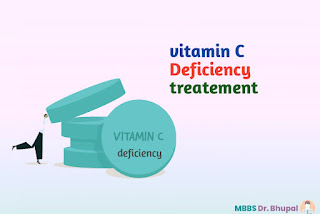How to Recognize and Treat Vitamin C Deficiency
Introduction
You might be surprised to learn that vitamin C deficiency is more common than you think. In fact, it's estimated that up to 75% of the world's population may be deficient in this essential nutrient.
If you're not getting enough vitamin C in your diet, you could be putting your health at risk. Symptoms of vitamin C deficiency can vary depending on the individual, but may include fatigue, joint pain, and poor wound healing. If you're experiencing any of these symptoms, it's important to see a doctor for a diagnosis.
Treatment for vitamin C deficiency typically involves increasing your intake of this nutrient through dietary changes and supplements. In some cases, IV therapy may also be recommended. With the right treatment, most people can recover quickly and return to their normal health.
What Is Vitamin C Deficiency?
You might not know this, but Vitamin C deficiency is actually pretty common. It's most often seen in people who smoke, because cigarettes reduce the amount of Vitamin C your body absorbs.
But there are other things that can cause Vitamin C deficiency too, like stress, poor diet, or alcohol abuse. Symptoms can vary from person to person, but can include fatigue, weakness, and swollen gums.
If you're experiencing any of these symptoms, it's important to see a doctor right away. Vitamin C deficiency can sometimes lead to more serious health problems if left untreated.
What Are the Symptoms of Vitamin C Deficiency?
If you're not getting enough vitamin C in your diet, you might start to experience some symptoms. Here are some of the most common ones:
-Fatigue
-Weakness
-Dizziness
-Headaches
-Swollen gums
-Bleeding from other sites, such as the gastrointestinal tract or vagina
If you're experiencing any of these symptoms, it's important to see a doctor right away.
How Is Vitamin C Deficiency Diagnosed?
If you're worried that you might have a vitamin C deficiency, there are a few things your doctor might do to diagnose it.
One is to ask about your dietary habits and see if there are any specific vitamin C-rich foods you might not be eating. They might also order a blood test to check your white blood cell count, since one sign of a vitamin C deficiency is an increased risk of infection.
If your doctor suspects you have scurvy, they might perform a skin biopsy or test your urine for levels of ascorbic acid.
What Are the Treatments for Vitamin C Deficiency?
If you're concerned that you might have a vitamin C deficiency, it's important to get it diagnosed and treated as soon as possible. Thankfully, there are a few treatments available to you.
Your doctor might recommend that you take vitamin C supplements, or they might suggest increasing your intake of foods that are high in vitamin C, such as bell peppers, broccoli, and oranges. In some cases, you might require a course of intravenous (IV) vitamin C therapy.
This is a treatment that involves getting nutrients directly into your bloodstream, and it can be very effective in treating severe cases of deficiency. It's important to note that IV therapy should only be used as a last resort, and it's always best to try to increase your intake of vitamin C through food first.
Can Vitamin C Deficiency Be Prevented?
It's important to be aware of the signs and symptoms of vitamin C deficiency so that you can get treatment if you do experience them. But what about prevention? Can vitamin C deficiency be prevented?
Yes, it can! There are a few things you can do to make sure you're getting enough vitamin C in your diet. Eating a balanced diet is always a good idea, and including fruits and vegetables that are high in vitamin C is a great way to boost your intake.
Another thing you can do is take a vitamin C supplement.
This is a great way to make sure you're getting the recommended daily dose. And finally, if you're worried about your intake, you can always talk to your doctor about getting tested for vitamin C deficiency.
What Are the Complications of Vitamin C Deficiency?
If you're not getting enough vitamin C in your diet, you're at risk for developing some pretty serious health complications. Here are a few of the most common ones:
-Bleeding gums
-Swollen gums
-Gingivitis
-Tooth decay
-Dry and splitting hair
-Rough, dry skin
-Weak bones and easy bruising
Conclusion
If you are experiencing some of the symptoms listed above, it is important to get diagnosed by a doctor. They will likely test your blood and urine for levels of vitamin C. Treatment for vitamin C deficiency can include supplementation, diet changes, and in some cases IV therapy.
If you are diagnosed with vitamin C deficiency, it is important to start treatment right away and to follow your doctor's instructions. Symptoms can vary from person to person, so it is important to get the right treatment for you.






0 Comments